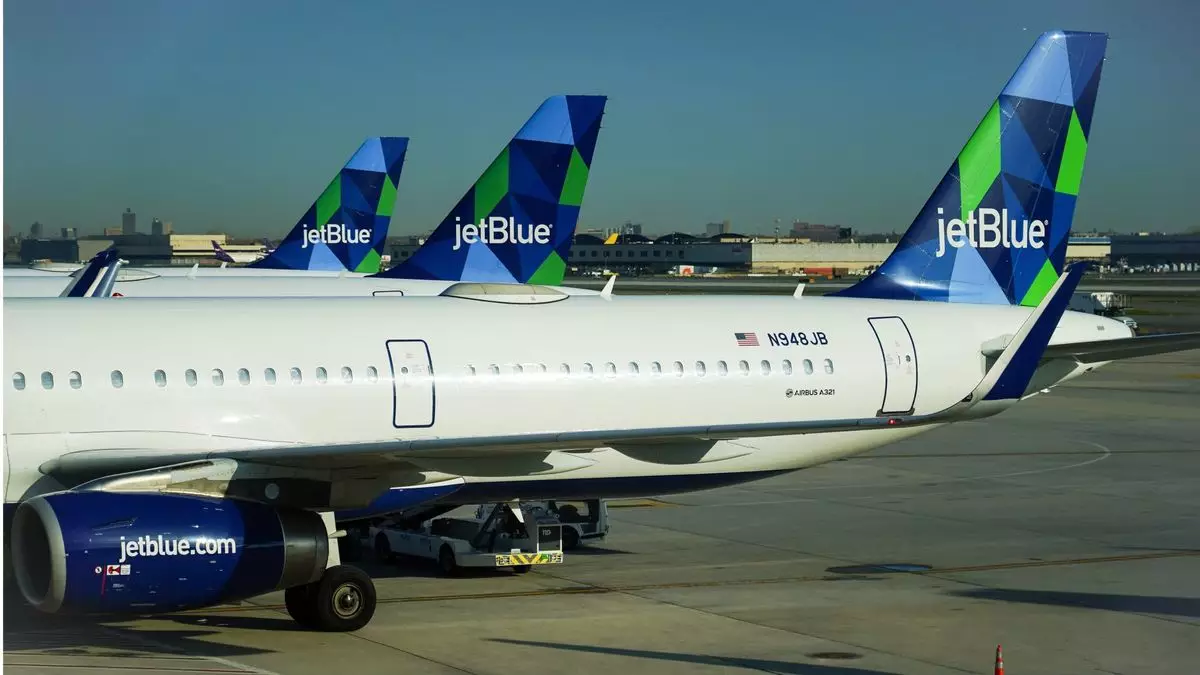The airline industry has long been a subject of scrutiny regarding its operational efficiencies and customer service standards. Recently, JetBlue Airways found itself at the center of a significant regulatory action, culminating in a $2 million fine imposed by the U.S. Department of Transportation (DOT) for chronic delays. This incident not only highlights the persistent issues within airline operations but also raises critical questions about accountability and the regulatory framework governing air travel.
The $2 million fine against JetBlue represents a landmark decision by the DOT, marking the first instance of the agency penalizing an airline for chronic delays. The fine stems from four specific flights that failed to adhere to established timeliness benchmarks, arriving over 30 minutes late more than 50% of the time over extended periods. Such prolonged delays were categorized by the DOT as indicative of unfair and deceptive business practices, prompting the need for regulatory intervention.
JetBlue’s operations between critical urban hubs such as New York and Raleigh-Durham, Fort Lauderdale, and Orlando have been particularly affected. The fact that these delays were documented consecutively over multiple months underscores systemic issues rather than isolated incidents. The DOT’s decisions serve not only as financial repercussions but also as a warning to the industry about the potential consequences of unrealistic scheduling practices.
In its defense, JetBlue has attributed much of its operational difficulties to external factors, including significant staffing shortages in air traffic control, particularly in the Northeast and Florida. While JetBlue is correct in recognizing the impact of these challenges, this argument raises an essential consideration: to what extent can airlines shift the blame for their scheduling shortcomings onto external entities?
The DOT’s position indicates that airlines have a responsibility to provide realistic schedules that can be adhered to, irrespective of external factors. It lays bare the complexities of operational accountability; while airlines may face challenges beyond their control, they are still tasked with ensuring that passengers can rely on their services to be timely and efficient.
Historically, JetBlue has struggled with on-time performance metrics, consistently ranking at the bottom among major U.S. carriers. In fact, JetBlue’s statistics for 2024 indicated an on-time rate of just 74.5%, better only than Frontier Airlines. This reveals a troubling trend for a company whose business model emphasizes customer service and reliability.
However, it is also noteworthy that JetBlue has shown improvements compared to the previous year, where delays affected 31.5% of its flights. This data may suggest that while past performance has not met customer expectations, the airline is investing in solutions to enhance efficiency and increase customer satisfaction, as seen in its willingness to settle with the DOT.
JetBlue’s decision to enter into a settlement agreement with the DOT serves as a pragmatic approach to avoid further legal complications and costs. The arrangement involves a million-dollar contribution to the U.S. Treasury and an additional million earmarked for compensating customers affected by delays attributable to the airline itself.
The ramifications of this case extend beyond JetBlue; it could set a precedent for other airlines that might be engaged in similar practices. As the DOT continues its investigations into unrealistic flight schedules across the airline industry, carriers may face heightened scrutiny and similar penalties if they fail to prioritize operational reliability.
Furthermore, the broader implications for air travel regulation cannot be ignored. The report from the FAA about a significant shortage of air traffic controllers underscores the need for substantial investment in air traffic management systems. Modernizing and improving air traffic control operations will be critical to enhancing overall flight punctuality and customer satisfaction across the sector.
JetBlue’s recent penalties from the DOT signal a critical moment for the airline industry, emphasizing the essential balance between operational efficiency and accountability. As airlines navigate challenges posed by external factors like air traffic control shortages, they must also contend with the increased regulatory oversight aimed at protecting consumer rights.
While the fine is a significant step towards holding airlines accountable for their performance, it is equally important to recognize that the industry’s long-term success will rely on collaborative efforts to address systemic inefficiencies. Both airlines and regulatory bodies must work together to foster an environment that prioritizes safe and timely air travel as a standard, not an exception.


Leave a Reply